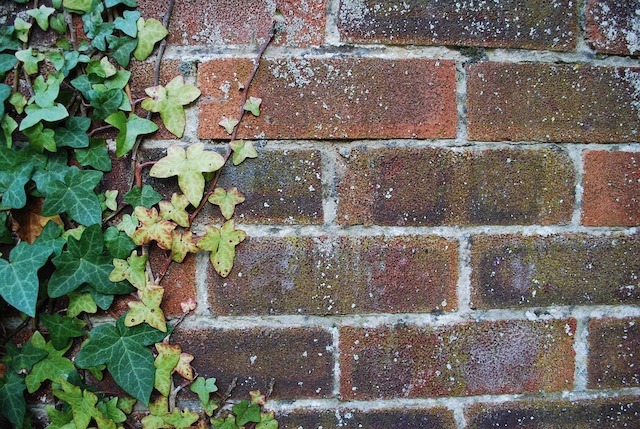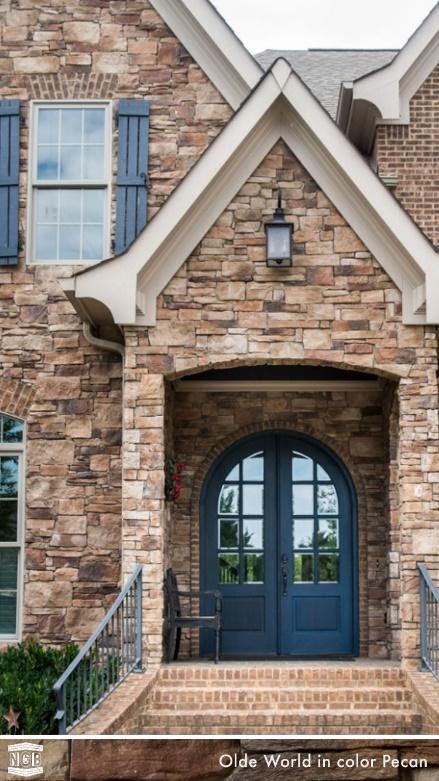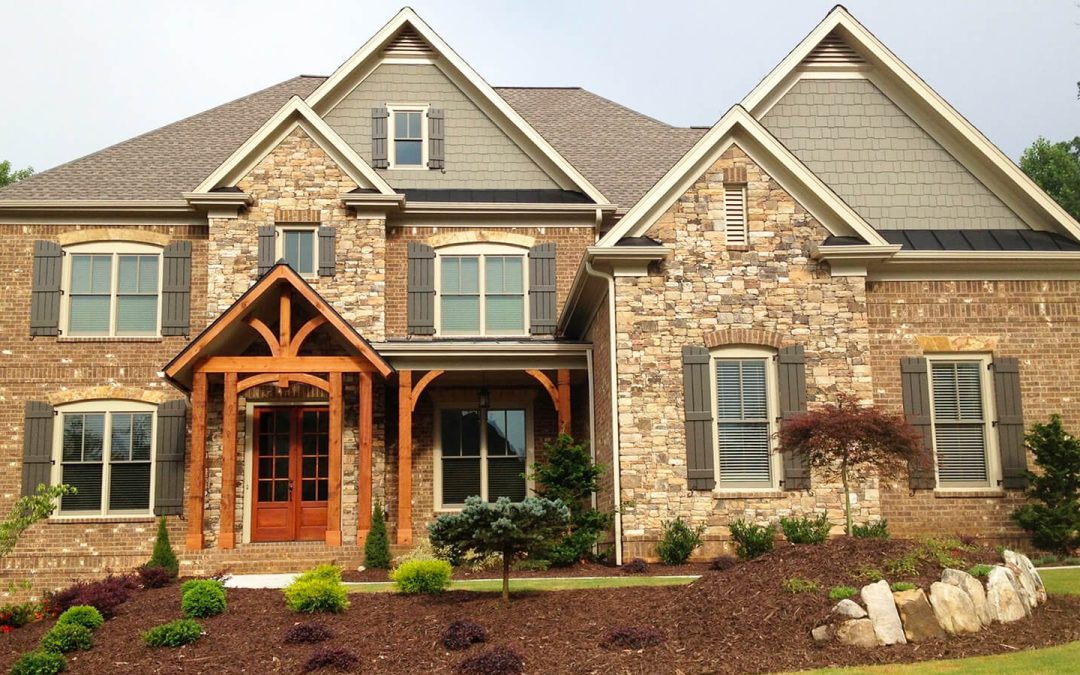For those starting the journey of building a new home, one of the most crucial decisions you’ll make is selecting the right building materials. Your choices will impact not only the aesthetics but also the long-term comfort, durability, and energy efficiency of your future dwelling. Brick stands as a popular option for exteriors, but is it more energy efficient than other materials? At North Georgia Brick, we believe that brick has many benefits for energy-conscious new builds.
How Does Brick Contribute to Energy Efficiency
Brick’s properties contribute significantly to energy-efficient homes. Its high thermal mass allows it to absorb and store heat, moderating indoor temperatures by releasing warmth in winter and absorbing excess heat in summer. When combined with cavity wall construction, brick’s insulation properties further enhance energy efficiency by minimizing heat transfer. Additionally, brick’s durability ensures a long lifespan, reducing the need for replacements and the associated environmental impact.
What’s Thermal Mass?
Thermal mass is the ability of a material to absorb, store, and release heat energy. Brick, with its dense composition, boasts a high thermal mass. This means it can soak up heat during the day, preventing it from immediately warming your interior. This natural temperature regulation reduces reliance on heating and cooling systems, ultimately saving energy and lowering your utility bills.


Do Brick Homes Stay Cooler in Summer?
Brick walls act as a natural buffer against the sun’s rays which helps to keep your home cooler in the summer. Due to brick’s high thermal mass, they absorb and store heat, slowing down its transfer into your living spaces. This reduces the need for air conditioning, helping you stay cool while conserving energy and saving on utility bills.
Do Brick Homes Stay Warmer in Winter?
When winter arrives, brick homes retain heat effectively. Their thermal mass stores warmth from your heating system, slowly releasing it to maintain a consistent indoor temperature. This reduces the need for constant heating, especially during those chilly North Georgia winters, keeping you comfortable and saving on energy costs.
Do Brick Homes Last Longer in all Climates?
Brick is known for staying strong against the elements in various climates. It’s a very durable material that can withstand the elements. Freeze-thaw cycles can pose a challenge in some regions, but proper construction and maintenance practices can mitigate this risk. If you live in an area with many freeze-thaw cycles, you may need to protect the brick by applying a sealant.
Other Sustainability Benefits
Beyond their thermal performance, brick homes offer other sustainability benefits. Brick is a natural and recyclable material, reducing environmental impact compared to less sustainable options. Its longevity minimizes the need for frequent replacements, conserving resources and reducing waste. Brick’s inherent fire resistance enhances safety and could even lower insurance premiums.
Overall, brick is a great choice for homeowners who are looking for an energy-efficient, durable, and beautiful home. We at North Georgia Brick are proud to provide high-quality brick products that can help you build the home of your dreams. If you have any questions about brick or its energy efficiency benefits, please feel free to contact our experts at our showrooms in Cumming, Cartersville, Newnan, or Lovejoy.

